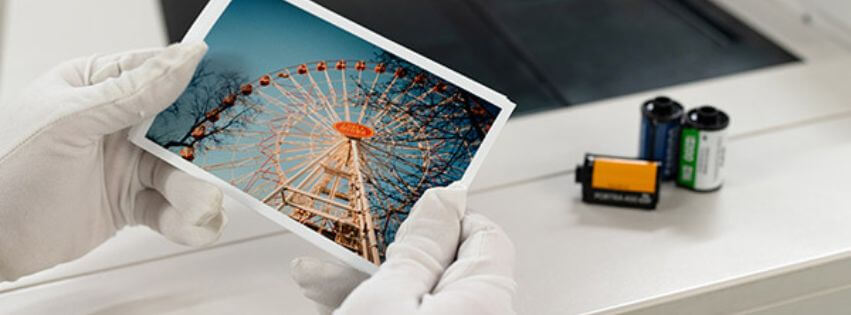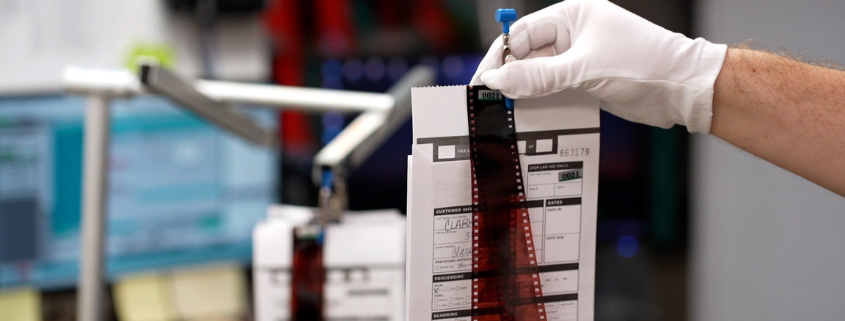Film Processing: Your Questions Answered! – IN HOUSE
Whether you’re just getting started with film photography or you’re a die-hard film shooter, we’re here to help. Film photography is a classic medium that allows you to slow down and take your time with each shot—capturing that moment on a physical piece of film, advancing the roll to the next frame, ready for the next image. Holding that roll of film in your hands, anticipating how it will come out, is exciting! Don’t trust your precious pictures to just anyone; we’re filming processing professionals!
You’ve got questions, and we’ve got answers!
What are the different types of film? Do you process all of these?
- You can capture images on color C-41, B&W, or E6 slide film. C-41 and B&W will give you negatives, while E6 slide film will give you a positive image after processing. Yes, we can develop all of these! (And we can scan and print them too!)
Do you process the film in-house or ship it to someone else?
- All film is processed in our lab by our team of professionals. We handle each roll with care, ensuring you receive properly developed film and professional-quality scans and prints.
Will I get my negatives back?
- Of course! Some places ship out your film for processing and then give you a link to the digital scans. Then, after developing, they throw your film away! Not us. The negatives are your originals, and we want you to have them.
What sets you apart from the drug stores or mail-away film labs?
- We care about our equipment and your film. Each day, before processing, we run a series of diagnostics to ensure our chemistry is fresh and everything is running smoothly before putting any film through the machine. After development, every image is reviewed by one of our technicians and color corrected to give you the best possible images from your film.
Can I still order prints or have my film digitized?
- Absolutely! We allow you to customize your film order. Choose from high-quality prints, scans, or both! Only order what you need. Reprints and enlargements are easy too!
How should I store my film after it has been developed?
- We recommend archival sleeves or plastic protective pages to keep your negatives and slides dust free. Always keep your film in a climate-controlled environment, away from direct sunlight and extreme temperature changes. Attics and basements are a no-no.
Have additional questions? Stop by or give us a call! Our technicians have decades of experience developing all types of film. We can answer your questions, tell you more about our process, and give you details about pricing and turn-around time.



